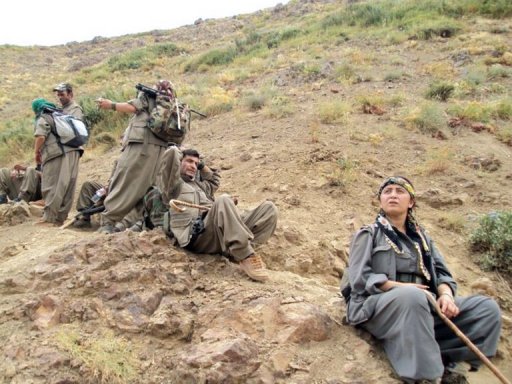Sheikh Hamza Al-Diri, the Bahraini Shia Islamic National Accord Association MP, recently launched an attack against the Sunni independent salafist MP Sheikh Gassem Al-Saidi.
In his attack, Sheikh Al-Diri claimed Sheikh Al-Saidi was generating hatred towards the Shia and Prophet Muhammad’s immediate family members (known as ahl al bayt). When asked by members of parliament to present a formal apology, Sheikh Al-Diri escalated his verbal attacks and added that Sheikh Al-Saidi was not the only one fuelling such hatred but the guardians of the Holy Mosques in Mecca and in Medinah did so as well.
In response to Sheikh Al-Diri’s accusation, Sheikh Al-Saidi issued a statement to express his resentment to what he described as an “unfounded accusation . The statement specified that this accusation was also hurled at the Imams of the Holy Mosques and to Sunni scholars. He added that such an accusation could only imply a takfiri attempt to shed doubt on his loyalty to the Muslim umma.
The sectarian implication of both statements sounded an alarm bell against a possible escalation within parliament. MPs were also alarmed that it could strain the relationship with Saudi Arabia. Several attempts were made to mediate between both parties to put an end to the conflict.
No official response was made in Saudi Arabia; however, Saudi lawyer Amin Taher Al-Bidiwi filed a case against Sheikh Al-Diri in Manama asking for the removal of Al-Diri from his parliamentary post and punishing him for unfounded accusations to Sunni figures and escalating sectarian tension between Sunnis and Shias.
Born to conservative parents in 1951, Sheikh Al-Diri suffered a difficult childhood and a disrupted education. At age ten, he had to work while he tried to complete his education by attending the circles of Sheikh Al-Sitri. From 1986 to 1992, he moved to the city of Qum to complete his religious education. His thought was deeply influenced by Khomeini, Al-Sadr, and Sheikh Issa Ahmed Qassem.
Sheikh Al-Diri is known for his fundamentalist thought and his opposition to the Bahraini government. He evaluates the current political situation in Bahrain as a “regression away from reform .
Al-Diri justified later that his statements first made in an online forum were taken out of context, and he added that he was talking about the validity of Shia prayer behind a Sunni Imam like Sheikh Al-Saidi. In answering a question about whether he prayed behind Sheikh Al-Saidi, Al-Diri explained that he never did and would never do it because he strictly follows the instruction of the Shia Imams.
One important aspect of the recent debate about Al-Diri’s statements is the fragility of the Bahraini democracy that was established in 1999 with the ousting of the ancient regime and the establishment of a constitutional monarchy. Elections were inaugurated in 2002, and they allowed for Islamists both Sunnis and Shia to use parliament as a platform for spreading their ideologies. Both Sheikh Al-Diri and Sheikh Al-Saidi are known as very strict religious figures that use a fundamentalist rhetoric against the rights of women, symbols of modernization, and any form of cooperation with the West.
Bahrain is mainly Muslim, with the Shias amounting to 70 percent of the Muslim population. The sectarian composition of Bahraini society is a very sensitive issue despite the wide use of political slogans, such as “sectarian fusion . Bahraini liberal politicians were recently alarmed by the growing power of the Islamists in parliament and tried to affirm their identity by launching the campaign We Have a Right focusing on individual rights and personal freedoms.
Another important aspect is the coinage of takfir in the debate. Whenever the term used it amounts to an invitation to violence. Even though the term was not literally used by Sheikh Al-Diri, it was added by Sheikh Al-Saidi in his interpretation. Without looking into their intentions, it is obvious that the term itself indicates a deep tension between both sects that is on its way to surface. Sheikh Al-Diri enjoys huge popularity within the Islamic National Accord Association which has 17 representatives in parliament of a total of 40 seats. He refused to issue a formal apology, and his party completed overlooked the incident in its website.
The Shia Islamists in Bahrain look at Iran as their model of a perfect theocracy. They attempted a failed coup in 1981, organized riots in 1994, and successfully campaigned for parliamentary elections in 2002 and 2006. The Sunni Islamists on the other hand look at Saudi Arabia as their model and are growing resentful of the evident power of the other sect. Bahrain was used as a model of “democracy of the periphery that works during the conference of Democracy and Political Reform in the Arab World held in Doha last May. Bahraini democracy, according to the model, is an example of a democracy tailored to Arab values. However, the incident at hand shows that this model has to prove itself resilient to survive the powerful Islamist ideology inherent in its foundation.
Omneya El Naggar, MA, Political commentator, researcher in comparative politics in the Middle East. She has also done research on political Islam, terrorism, and East-West dialogue. This commentary is special to DAILY NEWS EGYPT.


